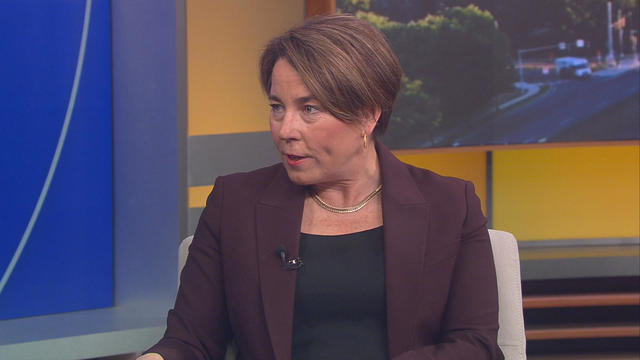BOSTON – Gov. Maura Healey does not see eye-to-eye with Massachusetts superintendents and teachers unions on some key education issues in the state. In the heart of the education debate in Massachusetts lies a contentious standoff between the state’s governor and its influential teachers’ union. At the crux of this disagreement are literacy standards and the Massachusetts Comprehensive Assessment System (MCAS) requirements, which have become flashpoints in the ongoing dialogue about educational excellence.
Healey says new approach to literacy needed
Healey, who put $30 million in her budget for “a statewide transition to evidence-based literacy learning,” says there are science-backed approaches to reading that many districts are not following.
Massachusetts Attorney General, Maura Healey, has recently made headlines with a bold assertion: a new approach to literacy is urgently needed in the Commonwealth. In a speech delivered at a statewide education summit, Healey emphasized the critical importance of literacy as the foundation for academic success and lifelong learning.
Healey’s call for a new approach to literacy is rooted in a recognition of the changing landscape of education in the 21st century. She argues that traditional methods of teaching reading and writing may no longer be sufficient to meet the diverse needs of today’s students, particularly in an era marked by rapid technological advancements and evolving modes of communication.
Central to Healey’s vision for literacy reform is a focus on interdisciplinary learning and real-world applications. She advocates for integrating literacy instruction across subject areas, from science and social studies to art and technology, to help students develop the critical thinking and communication skills they need to thrive in a complex global society.
Moreover, Healey emphasizes the importance of fostering a love of reading and writing among students from an early age. She proposes investing in high-quality children’s literature, providing access to diverse texts that reflect students’ identities and experiences, and creating supportive learning environments where every child feels valued and empowered as a reader and writer.
In addition to reimagining literacy instruction in schools, Healey calls for greater collaboration and partnership among educators, policymakers, community organizations, and families. She envisions a comprehensive approach to literacy that leverages the collective expertise and resources of all stakeholders to ensure that every child has the opportunity to become a proficient and enthusiastic reader and writer.
As Massachusetts grapples with persistent challenges in education, Healey’s advocacy for a new approach to literacy offers a beacon of hope and possibility. By embracing innovation, collaboration, and a commitment to equity and excellence, the Commonwealth can chart a course toward a brighter future for all its students.
MCAS ballot question
Massachusetts voters are facing a consequential decision as they prepare to weigh in on a ballot question regarding the future of the Massachusetts Comprehensive Assessment System (MCAS). At the heart of the debate is whether to maintain the state’s reliance on standardized testing as a key measure of student achievement and school accountability or to pursue alternative assessment methods that offer a more holistic view of student learning and performance.
Proponents of the MCAS argue that the standardized test provides valuable data for educators, policymakers, and parents, allowing them to identify areas of strength and weakness in the education system and to track student progress over time. They contend that the MCAS serves as an important tool for ensuring that all students receive a high-quality education and that schools are held accountable for their performance.
On the other hand, opponents of the MCAS ballot question argue that standardized testing places undue stress on students and teachers, narrows the curriculum, and exacerbates educational inequities. They advocate for a more student-centered approach to assessment that takes into account factors such as project-based learning, portfolios, and performance assessments, which offer a more authentic and comprehensive measure of student achievement.
.




